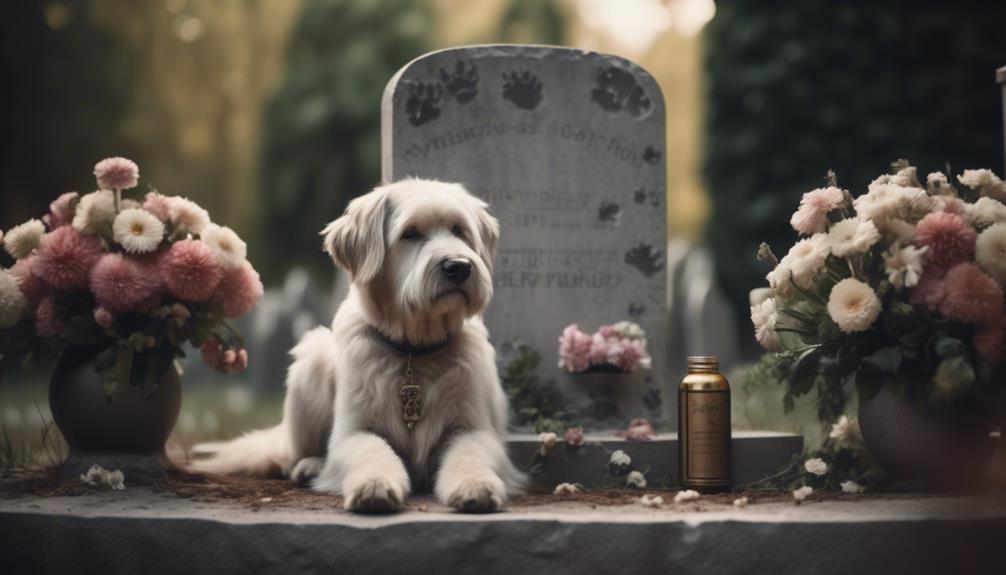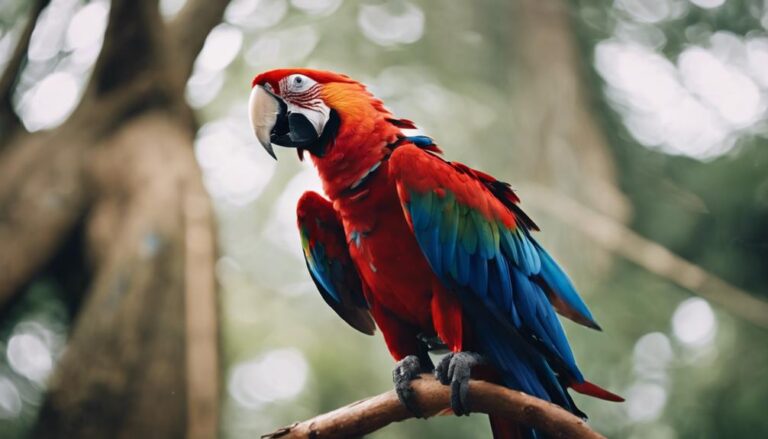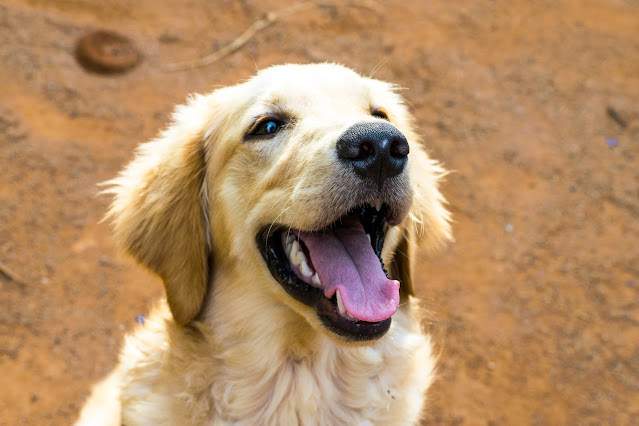The Death Of A Pet Can Be More Painful Than The Death Of A Human Family Member

The Death Of A Pet can be an incredibly painful experience, one that often surpasses the sorrow of losing a human family member. The bond we form with our furry friends goes beyond mere companionship; it is a connection built on unconditional love and loyalty. When a pet passes away, the void it leaves behind can be overwhelming, leaving us to grapple with a profound sense of loss.
But why is the death of a pet so heart-wrenching? In this discussion, we will explore the emotional intricacies of this grief, the unique role pets play in our lives, and how we can navigate the pain of losing our beloved companions. So, buckle up and join us on this exploration of the profound impact our pets have on our hearts and the challenges we face when they’re no longer by our side.
Emotional Connection and Unconditional Love
Losing a pet can be an incredibly painful experience, but the emotional connection and unconditional love we share with them make it all the more heartbreaking. The bond we form with our pets is backed by scientific research, which shows that it can be just as strong as the connections we have with other humans. This human-animal bond is built on trust, loyalty, and companionship.
Our pets become more than just animals; they become our family members and companions. They provide us with unconditional love, support, and comfort, making them an integral part of our lives. The emotional connection we develop with them is deep and profound. They listen to us without judgment, offer solace in times of distress, and celebrate with us during moments of joy. Their presence brings us a sense of belonging and purpose.
When we lose a pet, the pain we feel is a reflection of the deep meaning and significance of our relationship with them. The grief we experience is valid and should be acknowledged and supported. The love and emotional connection we have with our pets can be as significant as those with human family members. It is natural to feel a deep sense of loss, sadness, and emptiness when they are no longer by our side.
The loss of a companion animal can affect us in various ways. It can impact our emotions, mental well-being, and even our physical health. The grieving process may differ for each individual, influenced by factors such as attachment styles, personality, and the nature of the relationship. It is important to remember that there is no right or wrong way to grieve. Each person’s experience is unique and should be respected.
During this difficult time, it is crucial to seek support and understanding from others who have also experienced pet loss. Sharing our feelings and memories can provide comfort and healing. Additionally, there are resources available such as support groups, hotlines, and counseling services that can offer guidance and assistance in navigating the grieving process.
Unique Bond and Companionship
When your beloved pet becomes more than just an animal and transforms into a cherished family member and companion, their unique bond and companionship become an integral part of your life. The loss of an animal companion can be just as devastating, if not more so, than the loss of a human family member. As a dog owner, you understand the depth of this unique bond. Your pet is there for you through thick and thin, offering unconditional love and companionship that is truly one-of-a-kind.
The emotional closeness that you feel with your pet can be as strong, if not stronger, than the bond with other human family members. Your pet is always there, ready to listen without judgment, offering comfort and support during difficult times. They become an essential part of your daily routines and rituals, their presence bringing joy and a sense of purpose to your life.
When your pet passes away, the void they leave behind is palpable. Suddenly, the simple gestures and interactions that were part of your daily life are no longer there. Their absence disrupts your routines and leaves you feeling lost and empty. It’s natural to question if you could have done more if there was something you missed or overlooked that could have saved them. This sense of guilt and self-doubt can intensify the grief you feel.
Recognizing pet loss as a form of bereavement is crucial in understanding the depth of your pain. Seeking support from others who have experienced similar losses and actively engaging in the grieving process can help ease your suffering. Remember, you are not alone in your grief. Many people have gone through the loss of a beloved pet and understand the unique bond you shared. Lean on your support system, honor your pet’s memory, and give yourself permission to mourn.
Overwhelming Grief and Loss
Losing a pet can bring intense emotional pain and a devastating sense of loss. The bond and companionship you share with your pet can make their death just as painful as losing a human loved one. It’s normal to feel overwhelmed by grief and to question yourself, but remember that you are not alone in your feelings.
Intense Emotional Pain
Experiencing the profound loss of a beloved pet can bring about overwhelming grief and intense emotional pain that may be difficult to navigate alone. When a pet becomes a cherished member of the family, their absence leaves a void that can be deeply felt. The bond between a pet and its owner is unique and filled with love, companionship, and unconditional acceptance. The loss of this connection can lead to intense emotional pain that is often misunderstood or dismissed by others who may not recognize the significance of the relationship.
Society’s lack of understanding and support for pet loss can leave you feeling isolated, making it even more challenging to process your grief. It’s important to acknowledge and validate your emotions during this difficult time, seeking comfort and support from those who understand the depth of your loss. Remember, you are not alone in your intense emotional pain, and it is okay to mourn the loss of your beloved pet as you would any other cherished family member.
Devastating Sense of Loss
As you navigate the overwhelming grief and loss of losing your beloved pet, the devastating sense of emptiness and quietness in your home becomes a constant reminder of their absence. The daily routines you once shared with your pet now feel empty and incomplete. Their presence, once a source of comfort and companionship, has now been replaced by a profound void. It is completely normal to mourn the loss of a pet, as their unconditional love and unwavering loyalty become an integral part of our lives.
Remember that you are not alone in your grief. There are support groups and communities that understand the deep pain you are experiencing. Reach out to them, share your stories, and allow yourself to mourn the loss. Together, we can find solace and healing in honoring the precious memories of our beloved pets.
Role of Pets as a Source of Comfort
Pets hold a unique and cherished role in our lives, providing comfort and solace during both the good times and the difficult moments. As a pet owner, you understand the deep emotional connection that can develop between you and your beloved companion. Your dog, cat, or other furry friend becomes more than just a pet; they become a source of comfort and support.
The unconditional love and companionship that pets offer can be a lifeline during times of stress, loneliness, or sadness. Their presence can bring a sense of calm and peace, easing your worries and providing a much-needed distraction from the challenges of daily life. Whether it’s a gentle purr or a wagging tail, their affectionate gestures can brighten even the darkest of days.
When faced with the loss of a pet, the void left behind can be overwhelming. The absence of their comforting presence can disrupt your routines and leave you feeling lost and alone. It is not uncommon to grieve deeply for a pet, sometimes even more than for a human family member. The bond you shared with your pet was unique and irreplaceable, making their death a profound loss.
During this difficult time, it is important to acknowledge and validate your emotions. It is okay to feel the pain and sorrow that comes with losing a beloved companion. Allow yourself to grieve and remember that you are not alone in your feelings. Many pet owners experience a similar sense of loss and understand the depth of your grief.
Finding solace in memories and keeping artifacts of your pet can also provide comfort. Creating a memorial or writing about your grief can help you process your emotions and honor your pet’s memory. Seeking support from friends, family, or even online pet loss communities can also be beneficial. Surrounding yourself with understanding and compassionate individuals who recognize the significance of the bond you shared with your pet can provide a sense of comfort and understanding during this challenging time.
Understanding Disenfranchised Grief
Losing a pet can be an incredibly painful experience, and it is important to understand the concept of disenfranchised grief to navigate the unique challenges that come with mourning the loss of a beloved companion. When your pet passes away, you not only grieve the physical loss of a source of comfort, but you also mourn the loss of their unconditional love and companionship. Pets often become integral members of our families, offering us unwavering support, joy, and a sense of purpose. They provide us with a special kind of love that is free from judgment and conditions, making them a significant part of our lives.
However, society often fails to recognize the depth of pet grief, leading to disenfranchised grief. This means that the sorrow and pain you feel may not be acknowledged or understood by those around you. This lack of empathy can make it difficult to openly express your emotions and seek comfort from others. It can feel isolating and invalidate the significance of your bond with your pet.
In certain family or societal dynamics, the perception of pet grief as unacceptable can further compound your pain. You may be encouraged to “move on” quickly or dismiss your feelings as trivial. This can be incredibly hurtful and intensify your sense of loss.
Recognizing pet death as a legitimate form of bereavement is crucial for your healing process. Understanding that your grief is valid and that it is okay to mourn the loss of your furry friend can alleviate your suffering. It is important to find supportive individuals or communities that understand and empathize with pet grief, as they can provide the understanding and comfort you need during this difficult time. Remember, your pet was a cherished member of your family, and your grief deserves to be acknowledged and supported.
The Complexity of Euthanasia
Making the decision to euthanize your beloved pet can be an emotionally challenging and complex process. It is understandable that you may feel a range of emotions, including guilt and doubt, about the decision to end your pet’s life. These feelings are normal and can add to the complexity of the grieving process. It is important to remember that losing a pet is not the same as losing a human family member, but it can still be incredibly difficult. Pets often hold a special place in our hearts and are considered part of our closest family.
One of the complexities of euthanasia is the potential for disagreements within families. Different family members may have differing opinions about when the time is right to euthanize a pet. These disagreements can intensify the emotional turmoil of losing a pet, making it even more challenging to come to a decision. It is essential to have open and honest conversations with your loved ones to ensure that everyone’s thoughts and feelings are heard and respected.
Euthanasia also provides an opportunity for pet owners to say goodbye and plan final moments of love and respect. This can provide a sense of closure and allow you to be present with your pet during their last moments. Making these final decisions can be difficult, but it is important to remember that you are making them out of love and compassion for your beloved pet.
It is common for people to have different responses to pet euthanasia. Some may feel certain they made the right decision, while others may experience guilt or even suicidal feelings. It is crucial to seek support from friends, family, or even professional grief counselors who can help you navigate these complex emotions.
Coping Strategies and Support Systems
Coping with the loss of a pet can be incredibly challenging, but there are strategies and support systems available to help you navigate through this difficult time. It is important to recognize that the grief experienced after the loss of a pet is valid and that you are not alone in your feelings. One coping strategy is to seek support from pet loss support groups or professionals who specialize in helping individuals process their emotions and find understanding. These groups can provide a safe space to openly discuss your grief and connect with others who have experienced a similar loss. Sharing your thoughts and feelings with others who can empathize with your situation can be incredibly healing.
Engaging in public grieving can also be a powerful coping strategy. By openly discussing the grief and loss of your pet, you allow yourself to honor their memory and begin the healing process. This can be done through social media, writing a blog, or even talking to friends and family. Sharing your story may not only provide comfort for you, but it may also help others who are going through a similar experience.
Keeping artifacts such as ashes, photos, and drawings can provide comfort and help in remembering your beloved pet. Consider creating a memorial to honor their memory. This can be a physical space in your home or a virtual tribute online. Having a dedicated place to remember your pet can bring solace and allow you to reflect on the positive memories you shared.
Additionally, there are coping strategies that you can incorporate into your daily life. Writing about your pet and the memories you shared can be a therapeutic way to process your emotions. Developing new rituals, such as lighting a candle in their memory or taking a walk in their favorite park, can also bring comfort. Seeking support from others who have experienced pet loss can provide a sense of understanding and validation.
Honoring and Remembering Our Beloved Pets
Honoring and remembering our beloved pets is an essential part of the healing process, allowing us to cherish their memory and find solace in the love we shared. When we experience the loss of our pet, it can have a significant impact on our mental health. Our pets are often considered part of the family, and the loss of a family dog can leave us feeling a deep sense of grief and emptiness.
Finding ways to honor and remember our beloved pets can provide a sense of security and comfort during this difficult time. Creating a special tribute can help us remember and honor our pets. Consider organizing a memorial service where family and friends can gather to share stories and memories. Planting a tree or a flower in their memory can also serve as a symbol of their life and the love we had for them.
Keeping mementos can be a powerful way to cherish the memories of our pets. Photos, collars, and toys can serve as physical reminders of the joy and companionship they bring into our lives. Writing about our pets and sharing stories can be a therapeutic way to honor and remember them. It allows us to reflect on the happy moments we shared and keep their spirit alive in our hearts.
Engaging in activities that are meaningful to our pets can also be a way to honor their memory. Visiting their favorite spots or participating in activities they enjoy can bring a sense of connection and closeness. By doing so, we can create new memories while still honoring the bond we had.
In the midst of our grief, honoring and remembering our beloved pets can bring us comfort and healing. It allows us to celebrate their life and the unconditional love they gave us. Though they may no longer physically be with us, their memory will forever live on in our hearts.
The Death Of A Pet Frequently Asked Questions:
Does Losing a Pet Hurt More Than a Human?
Losing a pet can hurt more than losing a human because of the emotional attachment, unconditional love, and unique bond you share. The loss of daily companionship and absence of judgment can leave a noticeable void.
Why Losing a Pet Is Harder Than Losing a Family Member?
Losing a pet can be harder than losing a family member because of the unconditional love, role in daily routine, emotional support, non-judgmental companionship, and the grieving process involved. It’s a unique and painful loss.
Why Losing a Pet Hurts So Much?
Losing a pet hurts so much because of the emotional attachment and unconditional love you shared. That unique bond and the loss of your daily routine can leave you with a deep feeling of emptiness.
What Are the Stages of Grief After Losing a Pet?
Losing a pet can be incredibly painful. Coping mechanisms, like talking to a support system or memorializing your pet, can help you through the healing process. Remember, it’s okay to grieve and take your time moving forward.
Conclusion
Losing a pet is an incredibly painful experience that can leave a lasting void in your heart. The unconditional love and companionship they provide create a bond that is hard to replicate. Remember, it’s okay to grieve and take the time you need to heal. Reach out to your support system, whether it’s friends, family, or support groups, to help you navigate through this difficult time. Cherish the memories you shared and find solace in knowing that your beloved pet will always hold a special place in your heart.








